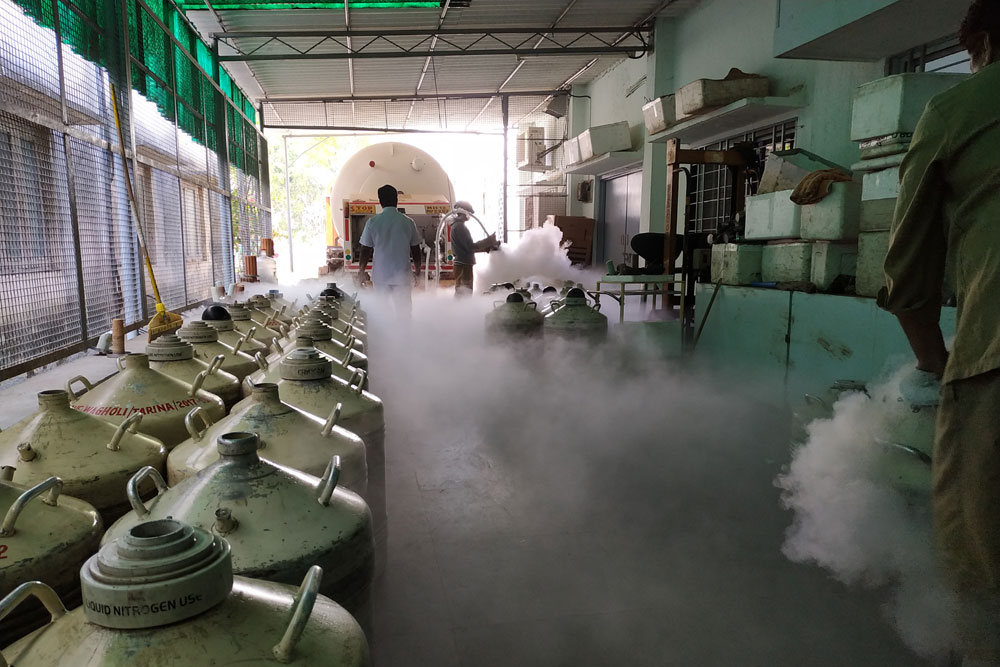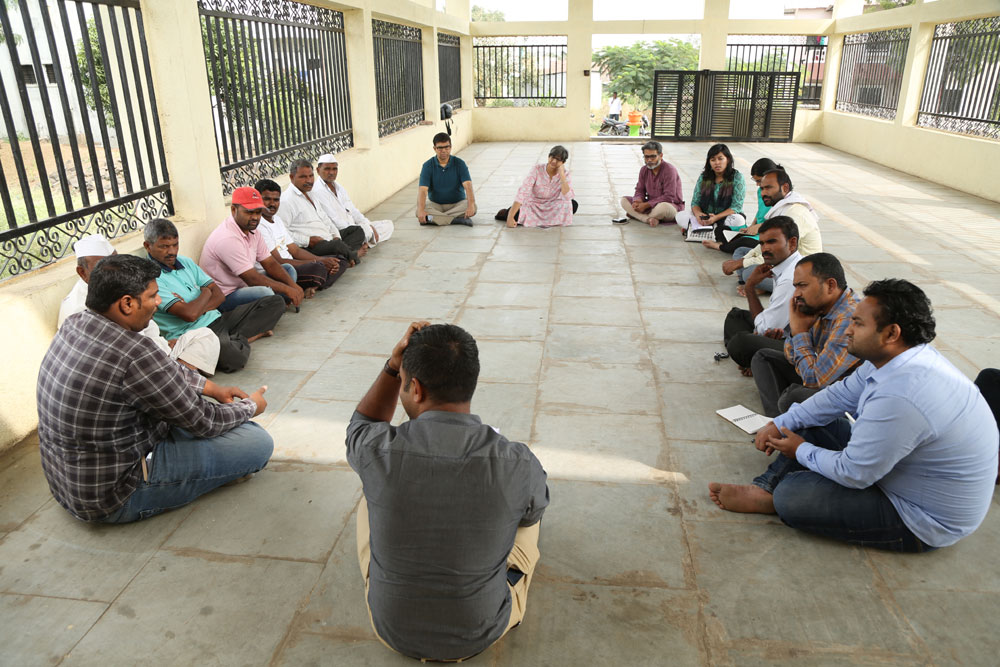Satish Awate
Programme Director
Sanskriti Menon
Senior Programme Director

Initiatives towards Sustainable Cooling
 Cooling is linked to several aspects of human wellbeing - fresh, nutritious food, comfortable homes, learning and work places, safe medicines and protection from heat for populations in a warming world. The demand for cooling is increasing globally driven by growing populations, urbanization and rising income levels in developing countries. Rising temperatures are likely to further accelerate the need for space cooling in the future.
Cooling is linked to several aspects of human wellbeing - fresh, nutritious food, comfortable homes, learning and work places, safe medicines and protection from heat for populations in a warming world. The demand for cooling is increasing globally driven by growing populations, urbanization and rising income levels in developing countries. Rising temperatures are likely to further accelerate the need for space cooling in the future.
Cooling is often an energy intensive process. without interventions, the energy demand may increase more than five times by 2050. Improvements are possible in passive and active cooling solutions, and directly contribute to SDG7- Affordable & Clean Energy and SDG 13-Climate Action, and to several other SDGs.
CEE, in partnership with Shakti Sustainable Energy Foundation (SSEF), MP EnSystems Advisory Pvt. Ltd and
Prof Toby Peters, University of Birmingham and Senior Research Fellow Heriot-Watt University is using participatory approachesto understand cooling needs in different contexts, bringing together technical experts to design sustainable solutions, and conduct policy dialogue to facilitate implementation of innovative and appropriate solutions.
Clean & Energy Efficient Cold Chain+
 Bringing cooling to rural areas – design of community cooling hubs with embedded IT solutions
Bringing cooling to rural areas – design of community cooling hubs with embedded IT solutions
Over the course of 2019-20, through a project led by CEE and supported by Shakti Sustainable Energy Foundation, with an expert advisory panel including Professors Toby Peters and Pawanexh Kohli and Dr Mahesh Patankar explored the wider economic, environmental and social reasons to bring affordable cooling to communities and to understand collaborative technology, economic and business models for cooling solution. This initiative builds upon the ‘Clean and Energy Efficient Cold-Chain in India’ (www.shaktifoundation.in), a study conducted in 2018-19 to assess the existing status of cold-chains in India.
The Centre for Environment Education (CEE) has been assessing rural cooling needs in three clusters in Maharashtra (June 2019 to July 2020) with help of Yuva Mitra (Nashik) and BAIF (Satara). The study includes assessment of agri-produce, healthcare, thermal comfort, etc to improve understanding of the opportunity for aggregation and cross-functional synergies.
Rapid Assessment of Vaccine Cold Chains
The COVID-19 pandemic has brought to fore the urgent need for a vaccine cold chain to meet a different set of requirements – mass vaccination in a concentrated period of time. India already conducts one of the largest Universal Immunization Programs (UIP) in the world and targets ~26 million newborns and ~30 million pregnant women each year translating into >300 million doses of vaccines each year, as per the Ministry of Health and Family Welfare, Govt of India. However, the world, and India are now facing a situation where the possibility has arisen that the entire population, or a substantial proportion thereof, may need to be vaccinated. This implies a very rapid expansion / redesign of the vaccine delivery mechanism. With technical guidance from Prof Toby Peters, University of Birmingham, MP Ensystems, and support from Shakti Sustainable Energy, a studyis underway to explore how the current vaccine cold chain in India may be bolstered, especially focusing on the last mile and point of use, to meet the expanded immunization needs. The study aims to yield insights and policy recommendations for sustainable (social, economic and environmental) strategies for COVID-19 vaccine cold-chains. The study, begun in June 2020 is expected to be completed by November 2020.
Key Partners




Contact information
Satish Awate
Programme Director
Sanskriti Menon
Senior Programme Director
Established as a Centre of Excellence of the Ministry of Environment, Forest & Climate Change, Government of India.